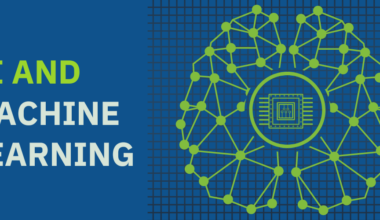Imagine being able to create your own software, apps, games, websites, and more. From smartphones to smart homes, from e-commerce to e-learning, from gaming to graphic design, computers have revolutionized every aspect of our lives. Imagine being able to explore the fascinating world of computer science and its applications in various domains. Sounds exciting, right? Well, you can turn your imagination into reality by pursuing a Bachelor of Computer Applications (BCA) degree. A BCA degree is a three-year undergraduate program that covers the fundamentals of computer science and its applications in various domains.
In this blog, you will learn about the BCA course syllabus, the structure of the course, and the specializations available.
What is BCA?
BCA, short for Bachelor of Computer Applications, is a three-year undergraduate degree program. It’s like a starting point for people who want to learn about computers and technology. In BCA, you’ll study various topics like how computers work, how to write computer programs, math related to computers, and even building websites. This degree helps you get ready for a career in the IT (information technology) field. It’s a mix of learning the theory and doing practical stuff.
BCA Course Structure and Subjects
The BCA course is divided into six semesters, each lasting for six months. In each semester, you will have to study a set of core courses and two concurrent courses, of which one is a language paper. The core courses are designed to provide you with fundamental knowledge and skills in various domains of computer applications, such as programming, data structures, databases, operating systems, web technologies, software engineering, and computer networks. The concurrent courses are meant to enhance your communication skills, social awareness, and professional ethics.
Some of the common BCA subjects that you will study in the BCA course syllabus are:
- Introduction to Programming with C: This course introduces you to the basics of the C programming language, such as data types, operators, control structures, functions, arrays, pointers, and file handling. You will learn how to write structured and modular C programs to solve various problems.
- Operating Systems: This course helps you to understand the fundamental concepts and components of an operating system, such as processes, threads, memory management, scheduling, synchronization, deadlock, file systems, and security. You will also learn about the features and functions of different types of operating systems, such as Windows, Linux, and Android.
- Database Management Systems: This course teaches you the principles and techniques of designing and implementing database applications. You will learn about the concepts of data models, relational algebra, SQL, normalization, transaction management, concurrency control, and recovery. You will also get hands-on experience using popular database management systems, such as Oracle, MySQL, and MongoDB.
- Object-oriented Programming using C++: This course helps you learn the concepts and applications of object-oriented programming, such as classes, objects, inheritance, polymorphism, abstraction, and encapsulation. You will also learn how to use the C++ programming language to implement object-oriented programs, such as constructors, destructors, overloading, overriding, templates, and exception handling.
- Java Programming: This course helps you acquire skills in using the Java programming language and developing small to medium-sized application programs. You will learn about the features and syntax of Java, such as data types, operators, control structures, methods, arrays, strings, inheritance, interfaces, packages, and applets. You will also learn how to use the Java Development Kit (JDK) and the Java Runtime Environment (JRE) to compile and run Java programs.
BCA Specializations and Electives
Apart from the core courses, the BCA course syllabus also offers you the opportunity to choose from various specializations and electives, according to your interests and career goals. Some of the popular BCA specializations are:
- BCA Data Science: This specialization focuses on the application of computer science, mathematics, and statistics to analyze and extract insights from large and complex data sets. You will learn about the concepts and tools of data science, such as data collection, data preprocessing, data visualization, data mining, machine learning, deep learning, natural language processing, and big data analytics. You will also learn how to use various data science frameworks and libraries, such as Python, R, TensorFlow, and PyTorch.
- BCA Data Analytics: This specialization focuses on the application of computer science, business, and domain knowledge to perform data analysis and generate actionable insights for decision-making. You will learn about the concepts and techniques of data analytics, such as descriptive analytics, predictive analytics, prescriptive analytics, and business intelligence. You will also learn how to use various data analytics tools and platforms, such as Excel, Tableau, Power BI, and Google Analytics.
- BCA Database Systems: This specialization focuses on the design, development, and management of database systems and applications. You will learn about advanced topics and trends in database systems, such as distributed databases, parallel databases, cloud databases, NoSQL databases, and data warehousing. You will also learn how to use various database languages and tools, such as PL/SQL, MongoDB, Hadoop, and Spark.
BCA Project and Internship
As a part of the BCA course requirement, you will also have to complete a project and an internship in the final year of BCA. The project is a practical work that involves the application of the knowledge and skills you have learned in the BCA course to solve a real-world problem or create a software product. The internship is a professional work experience that exposes you to the industry environment and helps you develop your technical and interpersonal skills. Both the project and the internship are supervised and evaluated by the faculty and the industry mentors.
BCA Career Opportunities and Scope
After completing BCA, you will have a wide range of career opportunities and scope in the field of computer applications and software development. You can work as a software developer, software tester, software engineer, web developer, database administrator, data analyst, data scientist, system administrator, network engineer, or software consultant in various sectors, such as IT, banking, education, healthcare, e-commerce, and government. You can also pursue higher studies, such as MCA, MBA, or MTech, to enhance your knowledge and skills and advance your career prospects.
Conclusion
BCA is a great degree that helps you become an expert in computer applications and software development. The BCA program includes a variety of subjects and options to match your interests. Plus, the BCA project and internship give you hands-on experience, making you ready for the job world. If you love computers and want to be creative and innovative, BCA is an excellent choice for you. For the best BCA college in Ghaziabad, look for more information online, do thorough research, and choose what best aligns with your goals.






